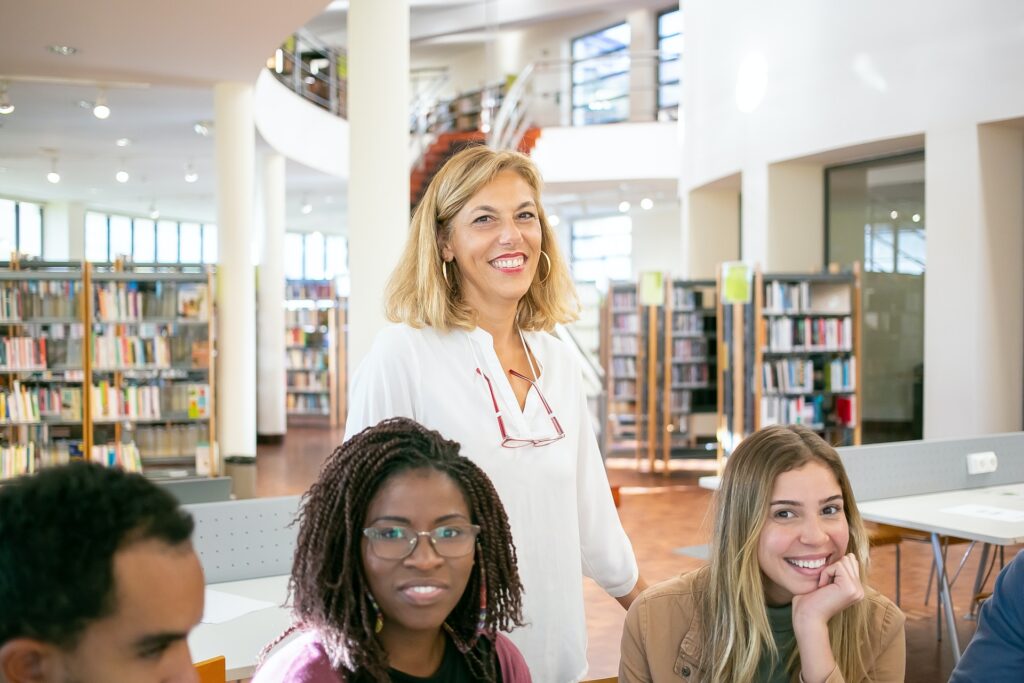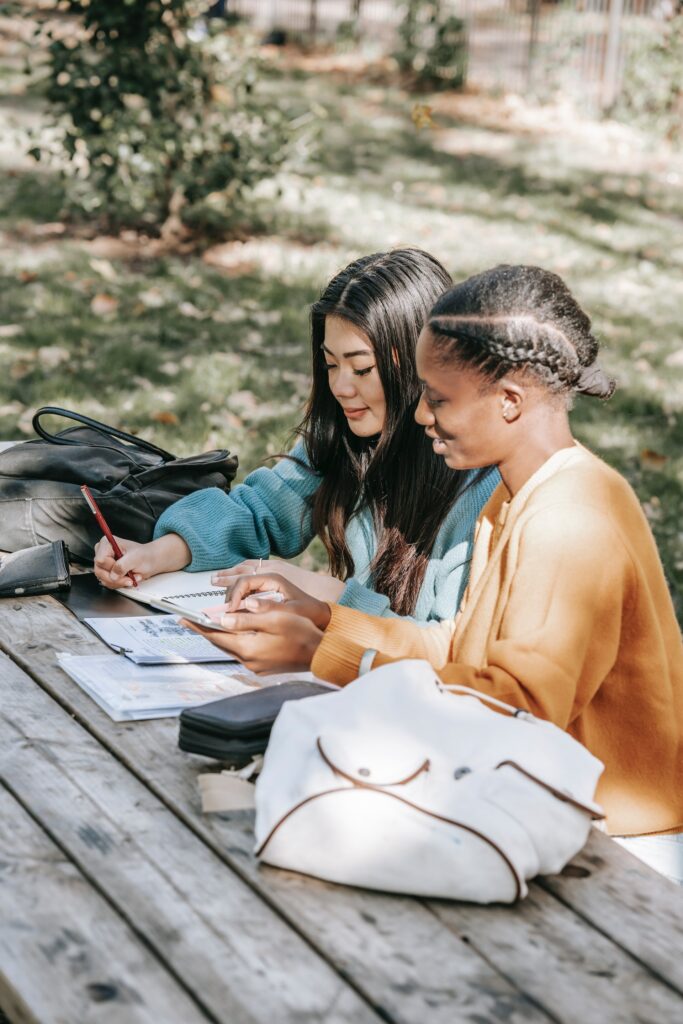About Project WAY
The WAY project aims to deepen knowledge about the development of self-regulated learning of upper secondary school students through their involvement in peer observation during classes. The title of the project summarizes not only the close connection between students’ self-regulated learning and peer observation that the team intends to study but also the importance of the student’s voice and their participation. The project follows the trend that the current time demand from the educative systems of students who need to be better prepared, active, and participative and capable of using metacognitive skills to self-regulate their learning [1]. Promoting these skills requires a change to differentiated and innovative pedagogical practices, personalized according to the needs of the students, taking into account their feedback [1]. This common umbrella articulates the team researchers’ previous research on developing critical thinking skills [2], student autonomy [3], peer observation [4], and students’ voice [5]. Even though Portuguese schools strive to promote pedagogical practices to develop these skills and the participation of students, these efforts do not include the proposal on which the project is based, which relates peer observation with the development of self-regulation of learning skills while seeking to provide opportunities for student participation in the change of pedagogical practices. If, on the one hand, peer observation can effectively develop observation, reflection, and self-analysis, promoting self-regulated learning, on the other hand, asking them to give feedback to the teacher about what they have observed, creates moments of participation and dialogue centred on classroom activities, allowing students’ voices to be heard.
This is the innovative approach that WAY intends to follow, and which is based on interventions and previous projects by members of the team of researchers [4; 6; 7], which have been developed in successive iterations of continuous cycles of design, analysis, and evaluation of Design-Based Research (DBR). DBR is chosen because it intends to study a specific learning environment that evolves over several iterations and develops new artefacts, practices, and respective support, generalizable to other learning environments [8]. Therefore, this intervention is assumed to be another DBR cycle intended to continue with later cycles. In short, the project aims to develop a program of peer observation in the classroom with students from schools that are participating institutions in the project, with the intent to study its contribution to the promotion of self-regulated learning skills and to provide opportunities for students to participate in the change of pedagogical practices.

The specific objectives are:
- To validate and apply a questionnaire to assess upper secondary Portuguese students’ self-regulated learning skills;
- To implement the peer observation program;
- To monitor the students’ self-regulated learning skills and their perception of the opportunities for participation provided;
To validate the peer observation program for the development of self-regulated learning skills; - To assess the potential of the program to provide opportunities for student participation in the change of pedagogical practices;
- Disseminate the program to the educational community, sharing the project’s products.

The hypotheses on which the project is based are:
- Students who observe how their peers approach and perform tasks in the classroom develop their self-regulated learning skills;
- The student’s awareness and reflection about what they observe contribute to the development of their self-regulated learning skills;
- The act of giving feedback to teachers about what is observed is perceived by students as an opportunity for their voices to be heard;
- The peer observation program is a viable educational strategy with the potential to be used in other schools.
In addition to pursuing the objectives and verifying the hypotheses with upper secondary school students, we will seek to assess the feasibility of peer observation with lower secondary students, also from a perspective of continuous DBR cycles, and with the aim of, in the future, extending the program to younger students, believing that greater self-regulation of learning can be beneficial in the transition to upper secondary education [9]. The actors of the project are the four partners Schools, located in different places on the coast and the countryside, rural and urban, in the north and centre of Portugal, as well as the team of researchers from three Portuguese Universities, who bring to the project the complementarity of the subjects they have investigated.
1- OECD (2018). The Future of Education and Skills: Education 2030. The Future We Want. Position paper published on 05-04-2018. OECD: OECD
2- European Commission (2019). Key competences for Lifelong Learning. Luxembourg: Publications Office of the European Union
3 – Duarte, Marina, Leite, Carlinda, & Mouraz, Ana (2016). The effect of curricular activities on learner autonomy: the perspective of undergraduate mechanical engineering students. European Journal of Engineering Education, 41, 91-104
4 – Mouraz, A., Torres, A. C., & Coelho, Z. (2017) Questões epistemológicas e pedagógicas da observação de pares. [Epistemological and pedagogical questions concerning peer observation]. In A. Mouraz & J. P. Pêgo (Orgs.). De par em par na U.Porto (pp.19-34). Edições da Universidade do Porto.
5 – Pereira, F., Mouraz, A., & Figueiredo, C. (2014). Student Participation in School Life: The “Student Voice” and Mitigated Democracy. Croatian Journal of Education: Hrvatski časopis za odgoj iobrazovanje, 16(4), 935-975. https://doi.org/10.15516/cje.v16i4.742
6 – Mouraz, A. & Ferreira, I. (2021). Contributions of Multidisciplinary Peer Observation to Lecturers’ Reflective Practices. Journal of Interdisciplinary Studies in Education, 10(1), 41–58. https://www.ojed.org/index.php/jise/article/view/1369/1537
7 – Torres, A. C., Lopes, A., Valente, J. M. S., & Mouraz, A. (2017) What catches the eye in class observation? Observers’ perspectives in a multidisciplinary peer observation of teaching program. Teaching in Higher Education, 22(7), 822-838. https://doi.org/10.1080/13562517.2017.1301907
8 – Nobre, A., Mallmann, E., Mazzardo, M., & Martin-Fernandes, I., (2017) Princípios teórico-metodológico de design based research (DBR) na pesquisa educacional tematizada por Recursos Educacionais Abertos (REA) [Teorethical and methodological principles of design based researchapplied to educational research within open educational resources environment]. Revista SanGregorio, ISSN 2228-7907
9 – Torres, A. C., & Mouraz, A. (2015). Students’ transition experience in the 10th year of schooling: Perceptions that contribute to improving the quality of schools. Improving Schools, 18(2), 127–141. https://doi.org/10.1177/13654802
